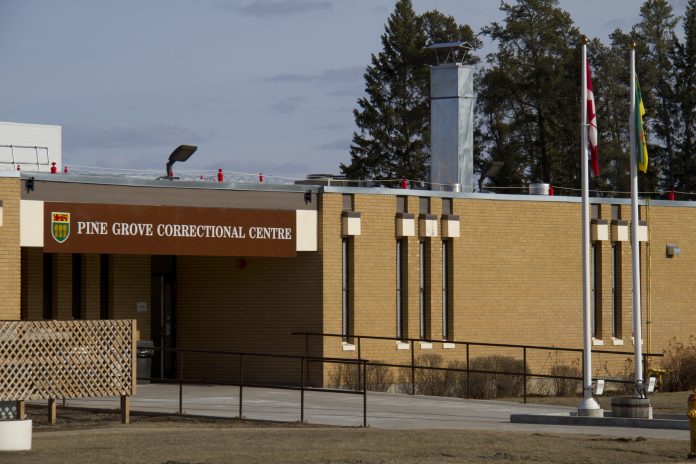Uko Akpanuko
Daily Herald
Four Saskatchewan organizations are calling on the provincial and federal governments to do more to prevent in-custody deaths.
The group, which comprises of Probono Law Saskatchewan, CLASSIC Law, the Elizabeth Fry Society of Saskatchewan, and the John Howard Society of Saskatchewan, issued a statement on Thursday drawing attention to 10 issues of concern two days ahead of Prisoners’ Justice Day on Saturday.
John Howard Society CEO Shawn Fraser said there have been 48 deaths in custody in Saskatchewan since 2017, and the provincial and federal governments need to do what they can to lower that number.
“No one is going into a Canadian provincial Institution for a death penalty. Almost every one who is charged with a crime in Canada will come back into the Society,” Fraser said. “Our first call to duty is about making sure to put an end to death in prison in Saskatchewan Institutions.”
On Prisoners’ Justice Day, inmates will sometimes refuse food and work in solidarity with those who died while in custody. The movement began on Aug. 10, 1976, following the in-custody deaths of Edward Nalon and Robert Landers at Millhaven Penitentiary in Ontario. Since then, Aug 10 has been a day for organizations to raise awareness about the issues people incarcerated in Canadian jails and prisons face and hold vigils in solidarity with those behind bars.
“Every time an somebody dies in custody it is not just about that person, it’s about their family,” Fraser said. “Its also about the people who work in the prisons. It’s not an easy thing for them to deal with too, oftentimes. One of the things is trying to break that cycle. When one (person) is in prison it leads to generational issues.”
In their statement, the group highlighted the need for healthcare staffing increases, mental health programming increases, and more dedicated detox beds. The group also called for more Trauma-Informed Training for correctional staff, increased resources for Saskatchewan legal aid,
and an end to barriers created by a phone system the group says profits off of people who are incarcerated.
The group also called to increased access to media so those who are incarcerated could share concerns and feedback without fear of punishment or reprisal.
However, Fraser said in-custody deaths remains the biggest concern. In their statement, the organization called on the provincial and federal governments to immediately begin to implement all coroner’s inquest recommendations relating to deaths in custody.
“Swift and urgent implementation will prevent Saskatchewan people from dying while incarcerated,” the statement reads.
As residents mark the Prisoner’s Justice Day, Fraser urged Saskatchewan citizens to recognize that creating a humane and just prison system benefits everyone in the province.
According to numbers provided by the John Howard Society, the Prince Albert Provincial Correctional Centre has had two in-custody deaths since 1997, the most recent of which occurred in July 2024. The Saskatchewan Penitentiary reported four in-custody deaths during that time, the most recent coming in January 2020, while the Pine Grove Correctional Centre reported more than a dozen, including three in 2024.
In a statement emailed to the Daily Herald Friday afternoon, a Saskatchewan Ministry of Corrections, Policing, and Public Safety spokesperson wrote that the Ministry had introduced a number of improvements in recent years designed to reduce in-custody deaths. The list includes providing inmates with admission to an assessment unit upon entry into custody for stabilization, providing Narcan training to all correctional officers, starting Take Home Naloxone and Opioid Agonist Therapy programs for inmates, and delivering Applied Suicide Intervention Skills Training to all current Correctional Officers.
The province has also created a charge nurse position to increase medical capacity and supervision in correctional facilities, and implemented an Electronic Medical Records System to improve access to medical records within provincial facilities and between facilities upon transfer or readmission.
The Daily Herald reached out to Correctional Services Canada, which oversees the Saskatchewan Penitentiary, for comment but did not hear back by press time.
—with files from Jason Kerr/Daily Herald
editorial@paherald.sk.ca


